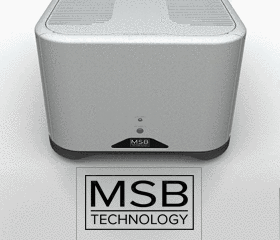Taking this and combining it with the original point of that started this thread, what do we think the measurements show of a tube amp that doesn't sound like SS and one that does? Is there nothing revealing in there?
If looking at the few ideal products in both camps, then they measure very closely if also accepting current audible perception conclusions, such as the work presented in AES and other publications.
One example for tubes would be the ARC Annivisary preamp and the McIntosh Anniversary special edition 275 tube amp (from what I remember subtly different to the standard model and only sold with McIntosh matching preamp), they match solid state.
That said it would be easier differentiating between pre and power amps, where possibly the preamp is easier to find more products that match well in terms of traditional measurements, though the traits of a tube preamp is not as great as say the best of their power amps but this also requires well restricted use in terms of speaker sensitivity-impedance-etc.
Anyway on testing-subjective listening, the problem IMO is that if trying to correlate sound differences, then real music complex "tone" is required, as an instrument sound is identified by its attack (critically time domain) and amplitude behaviour of its fundamental/partials-harmonics, while the sustain and decay will also affect the listener subjectively but in different ways.
A sinewave will never help to really correlate the behaviour of the best amps.
And this is where I have to differ from Tim about further testing, it is about testing a very well recorded instrument and major chord as it is in output from the player, and also in output from the pre and power amps.
A sinewave will never replicate what music (even if it is just a major chord) does in both the frequency and time domain.
Interestingly from what I have read if an instrument is just played louder then to us it sounds the same as the note just played, but in fact the two waveforms are different even when loudness is accounted for and they are compared again.
This shows just how much more complex musical notes are to a sinewave.
Anyway such tests that I mention are meaningless in building-testing an amp, but would be useful in comparing two products that are similar and yet preferences can and do differ between the products.
Possibly would be intersting to compare cheap mass produced high negative feedback amps to those that measure as well with no global feedback using such test, cheap class AB to a very good Class A and where both measure the same.
Edit:
Just want to emphasise that such test needs to look at the fundamental-harmonics from a scientific view of what is sound, which shows fundamental-harmonics with amplitude against time and provides a detailed envelope/spectral decay of the sound.
A snapshot of the fundamental-harmonic in the usual fourier analysis is not ideal as it does not show us the complete time domain of the sound.
Cheers
Orb




















